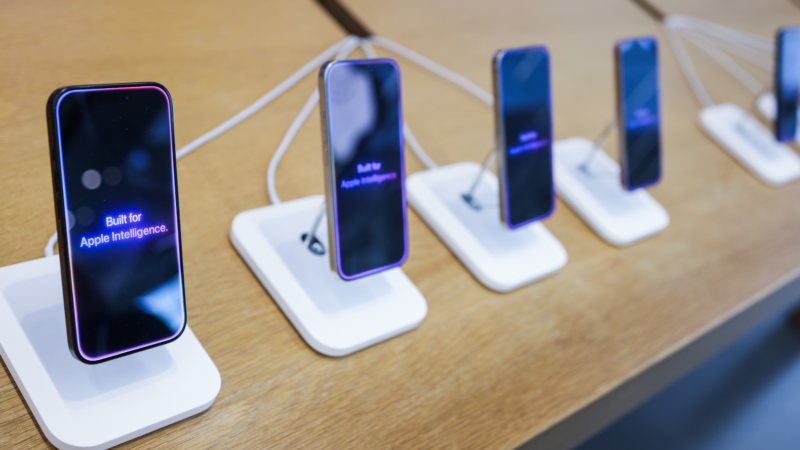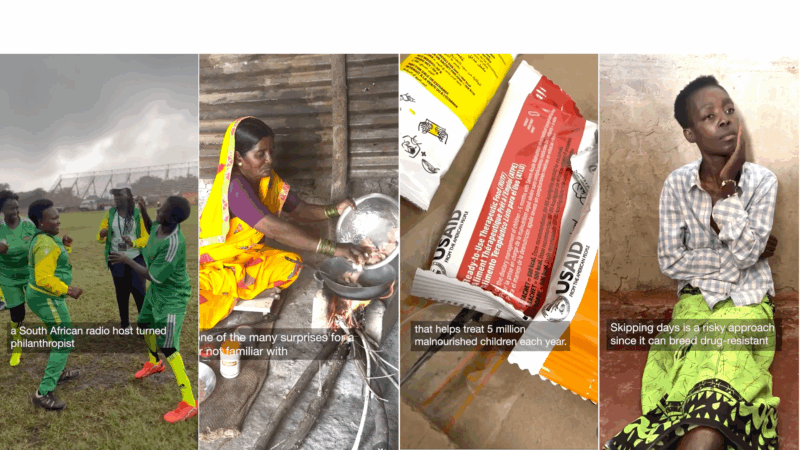Smartphones and computers are now spared from Trump’s reciprocal tariffs
The Trump administration has amended its list of imports that will be affected by sweeping global tariffs in order to exempt certain electronics, including smartphones and computers.
The updated guidance was published Friday night by U.S. Customs and Border Protection. The exemption will apply to President Trump’s steep “reciprocal tariffs” imposed across dozens of countries, which have since been paused until early July as well as the 145% levies currently in place on China. That was the only country excluded from the reciprocal tariff pause.
The exemption is effective for products that entered the U.S. or left warehouses starting on April 5. The White House issued a presidential memo about the exemption on Saturday.
When asked about the reasoning behind the exemption, White House press secretary Karoline Leavitt said in a statement: “President Trump has made it clear America cannot rely on China to manufacture critical technologies such as semiconductors, chips, smartphones, and laptops.”
Leavitt added, “At the direction of the President,” companies including Apple, TSMC and Nvidia “are hustling to onshore their manufacturing in the United States as soon as possible.”
The electronics exemption is a major development in the tariff war with China, which has imposed a 125% tariff on U.S. goods. Prices for electronics from China, a key sector, had been expected to spike.
Among the items that will now be spared from Trump’s steep tariffs include smartphones, computers, semiconductors, and flat panel display modules. But the updated guidance did not address any changes to the existing 20% tariff on Chinese goods in response to China’s involvement in the fentanyl trade.
According to the U.S. International Trade Commission, China has long been America’s chief source for electronic products, with Mexico, Taiwan, Vietnam, and Malaysia rounding out the top five.
There was also concern for American tech giants that rely on supply chains in China, like Apple. Before the updated guidance, Apple was expected to experience major setbacks as a result of the tariffs, Dan Ives, global head of technology research at Wedbush Securities, told CNBC earlier this week.
Top Instagram reels from Goats and Soda in 2025: Plumpy’Nut, aid cuts, soccer grannies
Our most-viewed Instagram videos include reports from a Rhode Island factory that makes special food for malnourished children and from a tournament for soccer-playing "grannies."
‘The Rest of Our Lives’ takes readers on a midlife crisis road trip
America's literary highways may be plenty crowded with middle-aged runaways fleeing lives that increasingly feel like a bad fit. But Ben Markovits adds a moving tale to the collection.
Hunker down with these 13 mysteries and thrillers from 2025
Mysteries and thrillers are enjoyable no matter the season, but there's something extra satisfying about curling up in the winter with a warm drink and an all-engrossing read. Here's what we suggest.
Should the U.S. model its vaccine policy on Denmark’s? Experts say we’re nothing alike
The Trump administration wants to revamp U.S. childhood vaccination recommendations to align with some other peer nations, including one tiny country in northern Europe.
Marijuana rescheduling would bring some immediate changes, but others will take time
President Trump set the process in motion to ease federal restrictions on marijuana. But his order doesn't automatically revoke laws targeting marijuana, which remains illegal to transport over state lines.
The cultural works becoming public domain in 2026, from Betty Boop to Nancy Drew
The original Betty Boop, the first four Nancy Drew books and Greta Garbo's first talkie are among the many works from 1930 that will be free to use, share and remake starting on Jan. 1.








